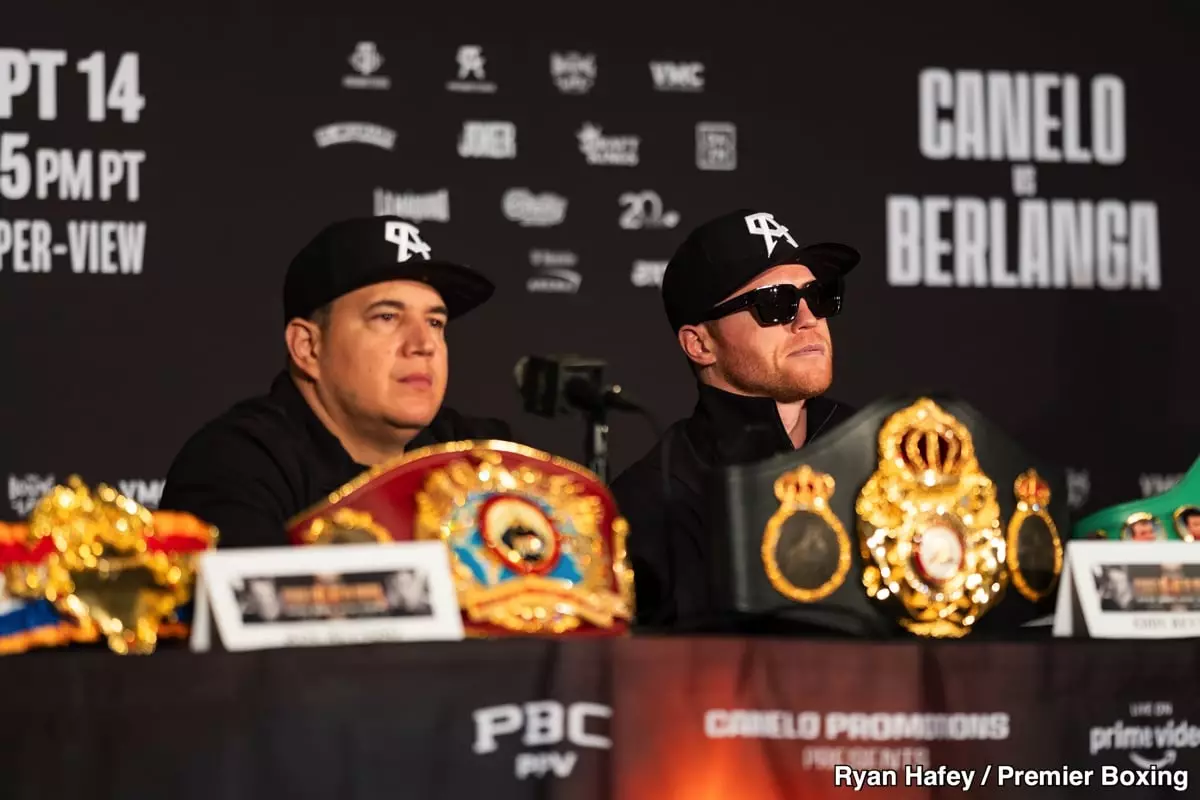In the ever-shifting arena of professional boxing, discussions regarding fight matchups can stir passionate debates among fans and analysts alike. Among the most prominent figures stoking interest is Matchroom promoter Eddie Hearn, who has claimed that a bout between former heavyweight champions Anthony Joshua and Tyson Fury represents the pinnacle of commercial success in boxing today. However, this assertion has not been without its detractors, particularly from boxing enthusiasts in both the United States and the United Kingdom, who argue that the fervor for this matchup has considerably diminished.
The Declining Allure of Joshua vs. Fury
Historically, the prospect of Anthony Joshua squaring off against Tyson Fury generated substantial excitement among boxing fans. However, recent performances have cast a shadow over the prospects of this once highly-anticipated match. Critics point to their underwhelming displays, suggesting that both fighters have not only failed to deliver impressive victories in their latest bouts but have also struggled to overcome notable opponents throughout their careers. Thus, skepticism arises when considering whether this clash would captivate audiences in the current boxing landscape.
The general sentiment, especially exuded by U.S. boxing fans, is that, despite the hype, interest in a Joshua-Fury fight has waned. Observers argue that even if the fight were offered at a fraction of the typical pay-per-view (PPV) price, many would likely refrain from purchasing it. Statistics surrounding past PPV events suggest that the allure of heavyweights in what might be viewed as a stale matchup could fall flat. In this light, many believe that the potential earnings from such a bout may not live up to Hearn’s optimistic commercialization claims.
The Case for Canelo Alvarez vs. Terence Crawford
As the discourse around heavyweight matchups unfolds, attention shifts to what many boxing enthusiasts deem the more compelling showdown: a fight between Canelo Alvarez and Terence Crawford. Both fighters have demonstrated remarkable skills and charisma inside the ring, garnering massive followings and an admirable level of respect. Notably, Canelo Alvarez possesses an impressive record of 62 wins, 2 losses, and 2 draws, alongside a staggering 39 knockouts, marking him as one of the sport’s most successful boxers.
The anticipation for a potential Canelo-Crawford clash is palpable. In the U.S. boxing community, it is viewed as a contest that could shatter previous records, drawing in a wide audience. Despite Canelo’s track record of sensational fights, he appears less inclined to accept bouts for any less than astronomical payouts, thus complicating the prospects for this dream matchup. Indeed, there are criticisms that Alvarez is more focused on lucrative opportunities rather than pure competition, making the negotiation process for this fight extraordinarily challenging.
The divergent opinions on Joshua vs. Fury and Canelo vs. Crawford illustrate a broader trend in the boxing industry—one where commercial considerations often clash with the desires of dedicated fans. Unlike previous eras where heavyweight matches dominated discussions and ticket sales, the current focus seems to be shifting toward fighters who consistently showcase skill and resilience, regardless of weight class.
Hearn’s promotion of the aging heavyweight rivalry can be understood as a strategic move to thrust his fighters back into the spotlight and bolster business for Matchroom Boxing. On the other hand, the vocal preference for a Canelo-Crawford bout signals a shifting paradigm—one where fans seek out elite skill and compelling narratives over historical legacy.
As boxing continues to navigate its complex landscape, it is essential for promoters, fighters, and fans to engage in authentic discussions about what truly constitutes the “biggest fight” in the sport. The need for genuine, competitive bouts resonates louder today than ever before, suggesting that the boxing world must prioritize creating matchups that do justice to the athletes’ talents. The debate regarding Joshua vs. Fury versus Canelo vs. Crawford not only highlights the changing preferences of fans but also emphasizes a more substantial conversation around the idea of what it means to be a champion in an evolving sport. In this context, the legacy of each fighter will ultimately depend on their ability to capture and sustain the interest of an increasingly discerning audience.


Leave a Reply